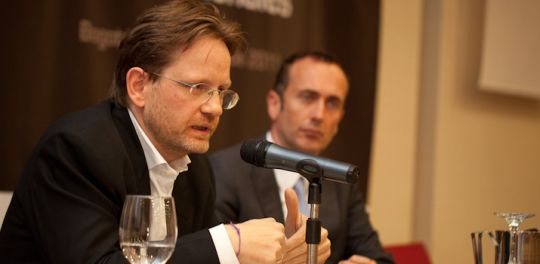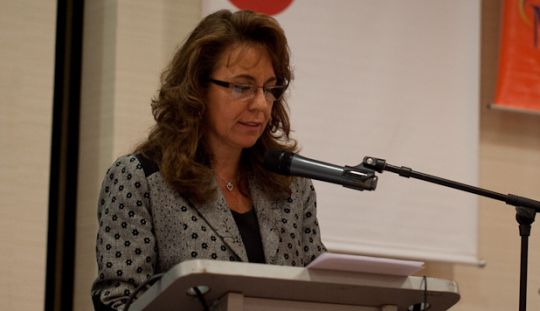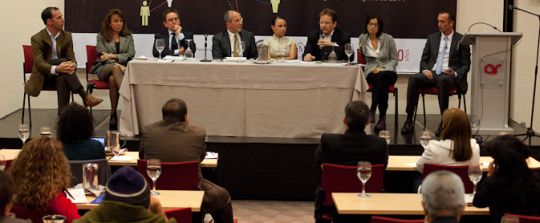Conference Closes With An Eye to the Future
The conference "Selection or Prioritization as a Strategy for Prosecuting International Crimes Cases?" took place August 24 with more than 150 participants from Colombia and around the world, including experts in transitional justice in the former Yugoslavia, Guatemala, Argentina, Germany, and Colombia, among others.
The opening speakers emphasized the importance of confronting the challenges of Colombia’s Justice and Peace Process and of learning from comparative experiences.
Marcelo Alvarez of the OAS stressed that Colombians need a promise of justice and peace that does not exist in the current process. Maria Camilo Moreno of ICTJ spoke about a transitional justice process that extends beyond criminal justice to also include reparations, institutional reform and truth-seeking. Andreas Forer of the German International Cooperation Agency discussed comparative experiences in strategies of international tribunals working with national mechanisms, as well as the importance of involving civil society in discussions about reforming the Justice and Peace Process.
The first session of the morning had three speakers discussing the importance of a selection or prioritization strategy for the prosecution of mass crimes in Colombia.

Iván Orozco of the Andes University in Colombia highlighted the legacy of the Nuremberg tribunal and how it influences the way in which the prosecution of crimes against humanity is presently viewed in Colombia. Former member of the ICTY Dan Saxon presented the selection criteria used by the ICTY in 2003, when instructed by the UN to focus on those most responsible for violations and leave other cases in the hands of national tribunals. Professor of Gottinger University Kai Ambos focused on other selection criteria that can be used and emphasized that no system, even the most consolidated, can investigate all acts committed, making a selection mechanism an imperative for Colombia.
The second morning session consisted of three presentations on various aspects of prosecution strategies for international crimes, focusing on understanding patterns of abuse.

Maria Paul Saffon, a doctoral candidate in political science at Columbia University, outlined the particular challenges of Colombia’s Justice and Peace Process and the differences between the criteria for selection and those for prioritization. Paul Seils , ICTJ vice president for programs and legal spoke on the state of the Justice and Peace process and the need for prosecutorial strategies, including prioritization of cases. The last speaker, Claudia López Díaz a representative of ProFis discussed the selection and prioritization strategy in Colombia, stressing that integral investigations are not those that look into every confessed crime, but those that look take into account the context of the criminal acts of the group.
The first afternoon session focused on comparative experiences from Argentina and Guatemala. The case of Argentina was presented by Lisandro Pellegrini, advisor to the General Prosecutor in Argentina. María José Ortiz , legal officer with CICIG in Guatemala presented the case of Guatemala. It was followed by a discussion period with the speakers and attendees.
After an intense day of exchange between academics, international organizations, and representatives from countries that have used transitional justice processes, Sergio Jaramillo, high counselor for security, Diego López Medina , professor at Los Andes University, and ICTJ’s Paul Seils presented their reflections on the conference proceedings. ICTJ’s María Camila Moreno moderated the session.

Photos by Camilo Aldana
Video by Mauricio Cardona
